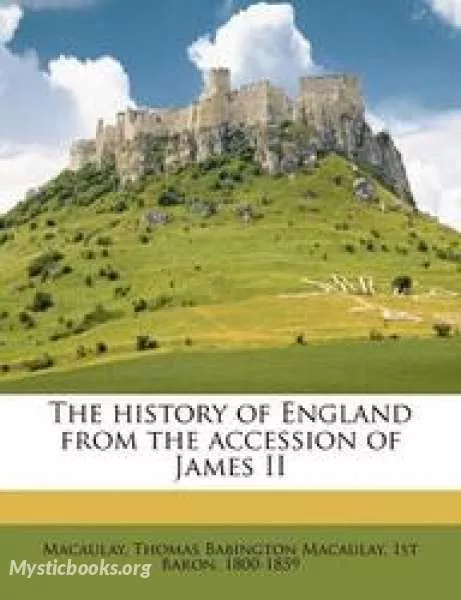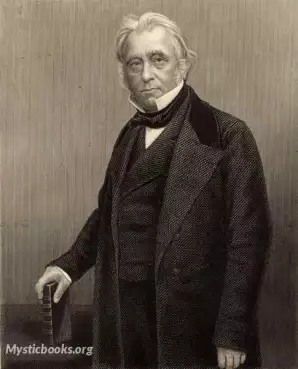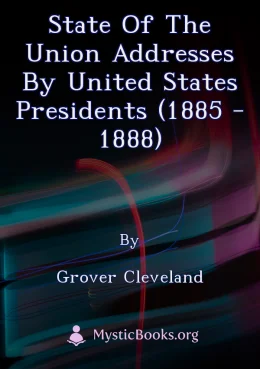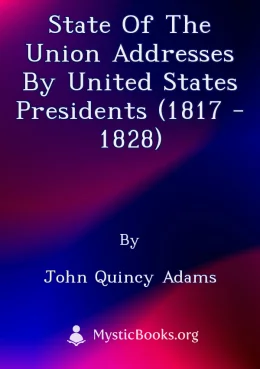
The History of England, from the Accession of James II - (Volume 4, Chapter 20)
'The History of England, from the Accession of James II - (Volume 4, Chapter 20)' Summary
Macaulay's approach to writing the History was innovative for his period. He consciously fused the picturesque, dramatic style of classical historians such as Thucydides and Tacitus with the learned and factual approach of his 18th-century precursors such as Hume, following the plan laid out in his own 1828 "Essay on History".
The History is famous for its brilliant ringing prose and for its confident, sometimes dogmatic, emphasis on a progressive model of British history. According to this view, England threw off superstition, autocracy and confusion to create a balanced constitution and a forward-looking culture combined with freedom of belief and expression. This model of human progress has been called the Whig interpretation of history.
Book Details
Language
EnglishOriginal Language
EnglishPublished In
1848Authors

Thomas Babington Macaulay
England
Thomas Babington Macaulay, 1st Baron Macaulay was a British historian and Whig politician. He is considered primarily responsible for introducing the Western education system in India. He wrote extens...
Books by Thomas Babington MacaulayDownload eBooks
Listen/Download Audiobook
- Select Speed
Related books

On Being Negro in America by J. Saunders Redding
This book is a memoir of the author's experiences as an African-American in the United States in the mid-20th century. It is a thoughtful and insightf...

State of the Union Addresses by United States Presidents (1885 - 1888) by Grover Cleveland
This book compiles the State of the Union addresses delivered by President Grover Cleveland during his first term in office (1885-1888). It provides a...

State of the Union Addresses by United States Presidents (1817 - 1828) by John Quincy Adams
This volume compiles the State of the Union addresses delivered by Presidents James Monroe and John Quincy Adams between 1817 and 1828. The addresses...

ultime lettere di Jacopo Ortis by Ugo Foscolo
Le ultime lettere di Jacopo Ortis è un romanzo epistolare di Ugo Foscolo, pubblicato nel 1799. La storia racconta la tragica storia di Jacopo Ortis, u...

God and the State by Mikhail Bakunin
God and the State (called by its author The Historical Sophisms of the Doctrinaire School of Communism) is an unfinished manuscript by the Russian ana...

A History of Greece to the Death of Alexander the Great, Vol 1 by John Bagnell Bury
The book covers artistic and literary development, as well as politics and war, and its field of view includes western Asia Minor, the Agean archipela...

Abigail Adams and Her Times by Laura E. Howe Richards
This book provides a glimpse into the life of Abigail Adams, the wife of John Adams, during a pivotal time in American history. It focuses on her expe...

Morals (Moralia), Book 1 by Lucius Mestrius Plutarchus
The *Moralia*, a collection of essays and speeches by Plutarch, provides a rich tapestry of ancient Greek and Roman thought. These writings explore a...

State of the Union Addresses by United States Presidents (1889 - 1892) by Benjamin Harrison
This book contains the transcripts of President Benjamin Harrison's annual State of the Union addresses delivered between 1889 and 1892. These address...

Old Master and Other Political Essays by Thomas Woodrow Wilson
This collection of five essays, published in 1893, explores various aspects of politics, government, and democracy in the United States. The essays de...
Reviews for The History of England, from the Accession of James II - (Volume 4, Chapter 20)
No reviews posted or approved, yet...